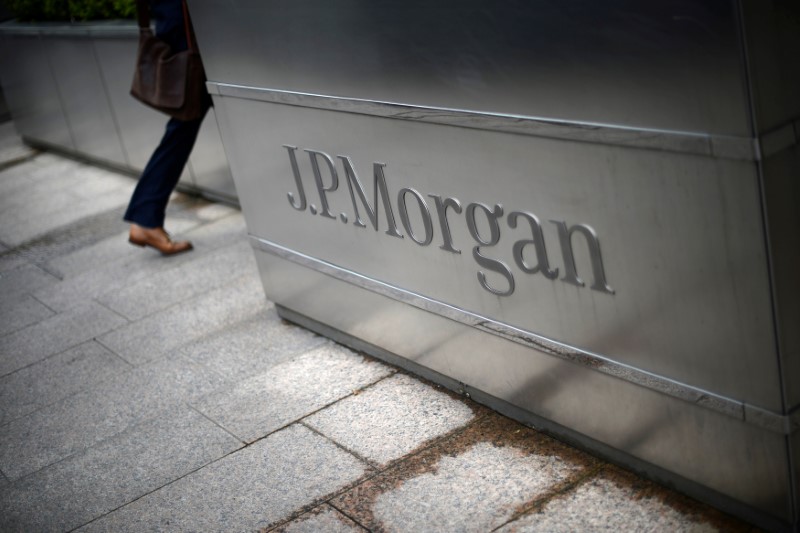By Huw Jones
LONDON (Reuters) - Citi has joined JPMorgan (NYSE:JPM) at the top of global regulators' list of systemically important banks, replacing HSBC and meaning the U.S. bank will have to hold extra capital from 2019 to help preserve financial stability.
The group of 20 economies (G20) agreed after the 2007-09 financial crisis that top banks, whose size and complexity mean a collapse could wreak havoc in markets, should hold extra capital, according to the level of risk they present.
Members of the list of 30 lenders will also have to begin holding bonds from 2019 that can be written down to help replenish capital that is burnt through in a crisis.
In the annual update of rankings published on Monday by the G20's Financial Stability Board (FSB), Citi has replaced HSBC in the top "bucket" facing a 2.5 percent capital surcharge on top of global minimum requirements.
The measure announced by the FSB does not have an impact on any of Citi's binding regulatory metrics, the bank said in an e-mailed statement.
No lender joined or dropped out of the top 30 list this year.
Lenders on the list typically already meet or exceed the amount of capital they must hold due to pressure from regulators and markets to dispel any doubts about their resilience.
HSBC joins BNP Paribas (PA:BNPP) and Deutsche Bank (DE:DBKGn) in the next category down, with a surcharge of 2 percent. Bank of America (NYSE:BAC) rose a category to join them.
Barclays (LON:BARC) dropped a category to the 1.5 percent surcharge group. Industrial and Commercial Bank of China and Wells Fargo (NYSE:WFC) rose a category to join the UK bank.
Morgan Stanley (NYSE:MS) fell a category to the 1 percent surcharge group.
The FSB is also due to agree a higher leverage ratio for the 30 lenders.
The ratio, a broad measure of capital to non-risk-weighted assets, has been set at a minimum of 3 percent for all other banks across the world.
The FSB has yet to decide if the 30 should be subject to the same leverage ratio "surcharge" or whether it too should adopt a "bucket" approach.
The watchdog also updated its list of nine globally systemically important insurers, which was unchanged from last year.
Insurers still on the list in 2017 will be required to comply with tougher "loss absorbency" requirements from January 2019.
The list comprises Aegon, Allianz (DE:ALVG), AIG, Aviva (LON:AV), Axa, MetLife (NYSE:MET), Ping An, Prudential Financial (NYSE:PRU), and Prudential (LON:PRU).
The FSB's latest list makes no mention of reinsurers, a category still being considered for inclusion.
Global insurance regulators have said they may take into account the activities of insurers when they decide if they are globally systemic, rather than just focusing on size and global reach.
MetLife, the biggest U.S. life insurer, was also designated as systemically important by the Financial Stability Oversight Council, made up of the heads of U.S. financial regulators.
The insurer successfully challenged the U.S. designation in court, but the U.S. government has appealed with the outcome generally expected sometime in the next few months.

"MetLife is no longer designated as a systemically important financial institution in the United States, and believe we should not be designated as a global systemically important insurer, either," MetLife said on Monday.